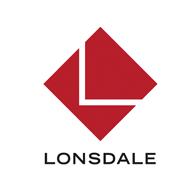
The answer often depends on the type of asset you own and the structure through which you own it.
Generally, when you die an executor that you nominate in your will takes control of your assets and has responsibility for distributing them in accordance with your wishes. The executor will normally apply for a court order declaring your will is valid. This court order is called probate.
If you die without a will, or if your executor is unable or unwilling to act, the court will normally appoint an administrator to the estate. The administrator has similar powers to an executor.
Then, they will deal with your assets in accordance with your will, or in accordance with the rules of your state if you didn't leave a will.
Let's look at what happens to your investments one by one:
Real estate
An interest in real estate held in your name alone forms part of your estate and is passed on or sold in accordance with your wishes as set out in your will.
This not necessarily true when you own real estate with someone else.
Jointly owned real estate can be held in one of two ways—as 'joint tenants' or 'tenants in common'. If a tenant in common dies, their interest in the real estate is an asset of their deceased estate and can be passed on to beneficiaries as dictated by their will.1 If they are joint tenants, however, their interest passes directly to the other joint tenant and does not form part of the estate.
Shares and managed funds
Directly-owned shares and units in managed funds that are in your name only form part of your estate and will be passed on in accordance with your will by your executor. The executor can sell shares and distribute the proceeds or distribute the shares directly.
But jointly owned shares come under similar rules to real estate. Where shares are held as 'joint tenants'—which is common in many brokerage accounts—the other owner automatically takes full ownership.
Bank account
If you have a joint bank account, the money will also transfer directly to the other joint holder.2 Otherwise, bank accounts are closed and the money paid to the executor or administrator, who then distributes the money to your beneficiaries.
Personal assets
Your personal property like cars, furniture, clothing, artwork and other goods form part of your estate.3 Most personal property will be distributed according to your will. Property that requires registration, like cars and boats, will need to be formally transferred by the executor.
Family trusts
Assets held in a family trust do not form part of your estate. Assets held in a trust are owned by the trust, which continues to operate after your death.4 The trust determines who gets the assets regardless of what your will says.
Private companies
Similar to family trusts, any assets owned by your private company do not form part of your estate when you die because those assets are owned by the company, not by you personally. This is true even if you are the only shareholder in the company.
The shares that you own in the company do form part of your estate and can be passed on.
Private companies can be complicated if you are the only director and don't leave a will appointing an executor who can appoint a director to the company after you are gone. In that case, a relative would have to apply to the Supreme Court for letters of administration to manage the estate which can take months(5), during which time the company may be unable to trade.
Superannuation
Your superannuation is also not part of your estate as it is held in trust to fund your retirement. Your super is passed to your beneficiaries in very specific ways, usually through a Binding Death Benefit Nomination or a reversionary pension.
The benefit of considering what type of assets will need to be dealt with when you are no longer around may not seem like a big deal but it can make it much easier for those set to receive things you want them to have and for those charged with distributing your assets. So it is well worth while giving the matters covered in our three part series on estate planning serious consideration.
1. https://www.ato.gov.au/General/Capital-gains-tax/Deceased-estates-and-inheritances/Inherited-dwellings/Joint-tenants/
2. https://moneysmart.gov.au/losing-your-partner
3. https://www.lawaccess.nsw.gov.au/Pages/representing/after_someone_dies/distributing_the_estate/transferring_personal_property.aspx
4. https://moneysmart.gov.au/wills-and-powers-of-attorney
5. https://asic.gov.au/for-business/running-a-company/company-officeholder-duties/importance-of-sole-company-directors-or-shareholders-having-a-will/
Written by Robin Bowerman
Head of Corporate Affairs at Vanguard.
28 July 2020
vanguardinvestments.com.au
24th-August-2020 | 


